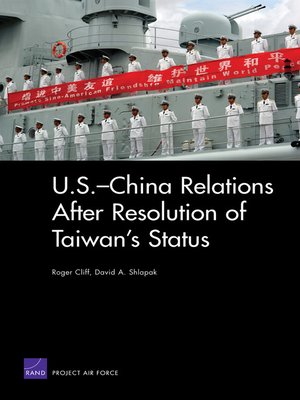
Sign up to save your library
With an OverDrive account, you can save your favorite libraries for at-a-glance information about availability. Find out more about OverDrive accounts.
Find this title in Libby, the library reading app by OverDrive.



Search for a digital library with this title
Title found at these libraries:
| Library Name | Distance |
|---|---|
| Loading... |
Although the question of Taiwan_s status is unlikely to be resolved soon, considering the various possible outcomes and how they might affect U.S._China relations is useful. A total of ten distinct trajectories for the resolution of the cross-strait relationship can be identified, with greatly varying implications for U.S.-China relations. Unsurprisingly, the impact of peaceful outcomes, including continued peaceful irresolution, is both more predictable and generally better for relations between Washington and Beijing. If China uses force against Taiwan, however, subsequent U.S._China relations could fall anywhere from close cooperation to hostile cold war. Both how the Taiwan issue is resolved and the nature of subsequent U.S._China relations will largely be determined by the nature of China_s government: a democratic, or, at least, highly pragmatic Chinese government is more likely to achieve a peaceful resolution; a government still controlled by the Chinese Communist Party is less likely to do so. As China_s military capabilities grow, it will become increasingly difficult but also increasingly more important to prevent Beijing from using force to bring about unification.







